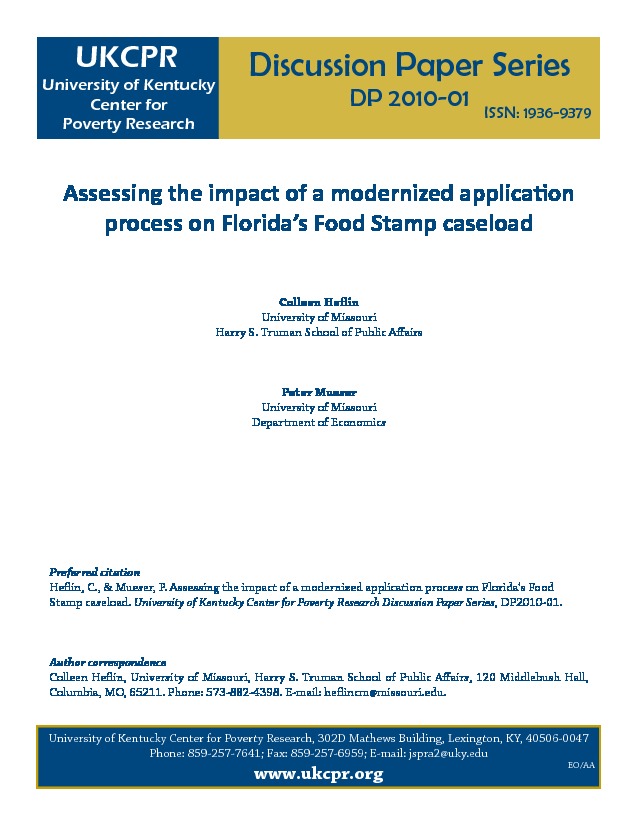In 2005, Florida implemented an internet-based service delivery system for eligibility determination in public assistance programs, including the Food Stamp, Temporary Assistance for Needy Families (TANF), and the Medicaid programs. At the same time, Florida switched from a caseworker model to a technology-driven model and decreased staffing levels of employees involved in social service delivery. We conduct an evaluative case study of the effects of these policy changes on the Food Stamp caseload. In particular, we consider the impact on applications and the flows onto and off of the program. To answer these questions, we use administrative data from the Florida Department of Children and Families for the period from 2003 to 2008 to understand the policy impacts on caseload dynamics. Results suggest that modernization may have resulted in decreases in application and inflows to the Food Stamp Program but with important differences for specific demographic groups. Simulations suggest that the strongest negative effects of modernization were observed among the elderly and African Americans. High earners, while still negatively affected by the staffing reductions, were observed to have gained modestly from modernization.
Research
SNAPPDF Thumbnail
